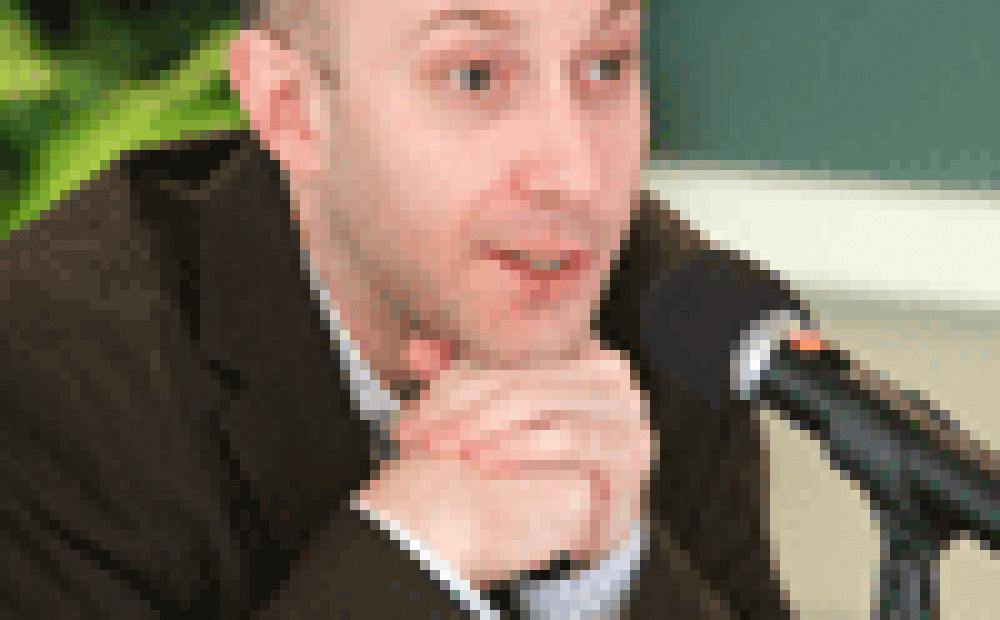Book Launch -- The Rebels' Hour

On Wednesday May 7, 2008 the Africa Program of the Wilson Center hosted a book launch for The Rebels' Hour with author Lieve Joris, a Belgian contemporary non-fiction writer. This is the third of Joris' books on the Congo. The Rebels' Hour recounts in detail the story of a real person, Assani, a young Banyamulenge cowherd who eventually becomes a rebel leader in the Democratic Republic of the Congo (DRC). The discussion was moderated by Mauro de Lorenzo, Resident Fellow at American Enterprise Institute (AEI).
Mauro de Lorenzo framed the discussion with a general statement on the international misunderstandings not only about the Banyamulenge, a mainly Tutsi group living in Eastern DRC, but also about the root causes of the conflicts in eastern Congo. As a prominent expert on the Banyamulenge community, he described the cultural and physical isolation of the group whose name is attached to the 1996 coup that ousted Mobutu, the former leader of the DRC, then known as Zaire. De Lorenzo introduced The Rebels' Hour as a piece of literary non-fiction, which depicts one period in both Banyamulenge and Congolese history. The personal history of one Banyamulenge is woven into a larger story of the Congo through Joris' words.
Lieve Joris began her presentation with a brief explanation of her connection to the DRC. After listening to her great uncle's stories of life as a Belgian missionary to the Congo, Joris was drawn to the country. Initially seeking a more intimate understanding of Congo, she also strove to uncover the Congolese view of her uncle's work. Her travels to the Congo have resulted in a trilogy of books. Joris described her first piece, Back to the Congo, as a bird's eye view of the Congo. In her second book, Joris' writing moved to a ground-level perception of the country. Now in this third book, The Rebels' Hour, she has gone beneath the surface and given voice to a piece of Congolese history, little known both inside and outside the country.
Joris read two excerpts from the book. The first passage described young Assani's journey from the mountains to the highlands and the second, a time in his later life as a rebel leader resisting the Mai Mai, a community-based armed group in the eastern DRC. Joris highlighted the importance of the mountains as a symbol of the isolation of the Banyamulenge. For her, Assani's act of descending and facing other ways of living raised questions of identity and maturation.
According to De Lorenzo, Joris' particular ability to gain access to such an intimate story is due to several factors. First, she gained the trust not only of Assani but of others in the community through her extended time spent on the ground and her perceptive understanding of the Banyamulenge cultural values. Secondly, Joris highlighted the fact that Assani initially began to share his story because he thought he was dying. Furthermore, at the beginning of the second Congolese war he was cut-off from part of his history. Joris held a piece of that history and could help him maintain contact. Finally, she revealed the one question she keeps in mind throughout the writing process: "what if this had been me?" Through this writing method, Joris attempts to humanize all of her protagonists. She concluded that the story is targeted at international audiences but she hopes Congolese will read it and understand its importance to their current conflict and future.
Drafted by Alicia Ranck, Intern and Roseline Fodouop Tekeu, Program Assistant, Africa Program.
Hosted By

Africa Program
The Africa Program works to address the most critical issues facing Africa and US-Africa relations, build mutually beneficial US-Africa relations, and enhance knowledge and understanding about Africa in the United States. The Program achieves its mission through in-depth research and analyses, public discussion, working groups, and briefings that bring together policymakers, practitioners, and subject matter experts to analyze and offer practical options for tackling key challenges in Africa and in US-Africa relations. Read more
